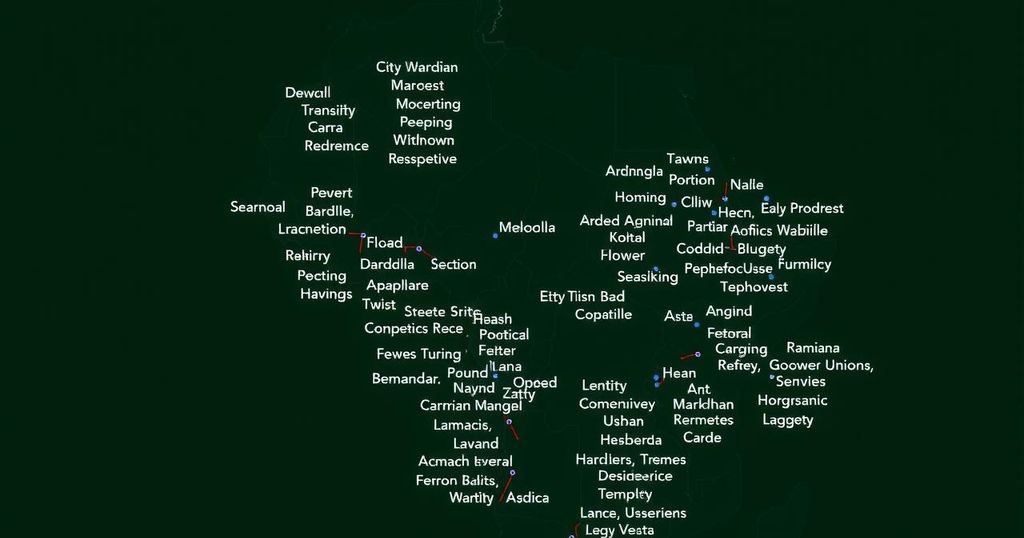Donald Trump’s potential return to the presidency poses significant implications for Africa, where his transactional approach to diplomacy may replace traditional multilateral efforts. Concerns arise over ongoing conflicts in regions such as Sudan and Ethiopia, with diminished U.S. involvement threatening the prospects for peace and stability. Leaders must prepare for a landscape embedded in realpolitik that could undervalue democratic practices and cooperative frameworks for conflict resolution.
The election of Donald Trump as President of the United States brings both opportunities and challenges for Africa, due to his unconventional approach focused on transactional politics rather than traditional diplomacy. Trump’s administration previously shifted Presidential policies that toward bilateral agreements and decreased focus on multilateral peacekeeping efforts, particularly during his first term from 2017 to 2021. Under the Obama administration, initiatives aimed at strengthening African Union-led peacekeeping efforts, which included reforms for funding and a shared framework for crisis resolution, fell by the wayside during Trump’s tenure. While African leaders may have appreciated Trump’s directness, the current environment underlines a diminished commitment to multilateralism and an increasing reliance on autocratic influences. During Trump’s first administration, a series of deals, notably in the Middle East, showcased his preference for personal diplomacy and direct negotiations with authoritarian leaders. His approach diverged significantly from the principles of the ‘liberal peace’ paradigm that emphasizes democracy and human rights, moving instead toward what some scholars term ‘illiberal peace’. Despite some critiques from various leaders and organizations, there was a certain appeal found in his pragmatism, as seen through the lens of realpolitik, especially for those desiring quick results over lengthy diplomacy. The expectation of a second Trump administration heralds the continuation of these policies, including a focus on strategic relationships that might reshape dynamics in regions like the Horn of Africa and Sudan. This shifting landscape raises concerns regarding ongoing violence, with competing interests from countries like Egypt, the UAE, and Saudi Arabia complicating peace efforts. The United States’ military presence in Africa remains tenuous, with little indication that Trump would actively address staggering issues like jihadist movements in West Africa or the need for cooperation in conflict resolution while indifferent to the implications for humanitarian crises. Allies such as Morocco might pursue their agendas, complicating international relations further. The potential for renewed conflict remains a stark reality as regional actors strategize within the context of US foreign policy shifts. Africa’s leaders must prepare for the challenges of a possible Trump presidency marked by a further retreat from multilateralism and the prioritization of transactional relations over sustainable diplomacy. While there could be opportunities for diplomatic engagement, the overall perspective suggests that the foundations of collaborative peacekeeping and its benefits may remain at risk under a transactional system that incentivizes dealing with autocrats rather than fostering democratic institutions. The upcoming elections for leadership positions within the African Union may serve as a critical juncture for reevaluating partnerships with the United States in a potentially contentious climate.
The article examines the implications of Donald Trump’s presidency on Africa, particularly focusing on his unique approach to diplomacy. Trump’s transactional leadership style contrasts sharply with traditional diplomatic practices, which historically emphasized multilateral cooperation and adherence to principles like democracy and human rights; characteristics typically embodied by previous administrations. The analysis offers insight into the evolving geopolitical landscape in Africa influenced by recent historical contexts, including Trump’s initial presidency’s foreign policy decisions in the region, which have led to a decrease in US involvement in peacekeeping missions and conflict resolution initiatives.
In summary, Donald Trump’s anticipated second presidency presents both opportunities and dangers for the African continent. His preference for direct, bilateral dealings may streamline certain negotiations yet compromises established norms of multilateral diplomacy. Current conflicts in regions like Sudan and Ethiopia augur for urgent U.S. engagement, though Trump appears disinclined to commit vigorously. Additionally, the lack of concern for longstanding democratic values raises fears that transactional politics will overshadow the essential need for peacebuilders focused on collective, principled approaches. Africa’s leaders are thus positioned at a crossroads, anticipating possible shifts in their relationships with the U.S. while navigating an uncertain and potentially volatile global landscape.
Original Source: www.bbc.com






